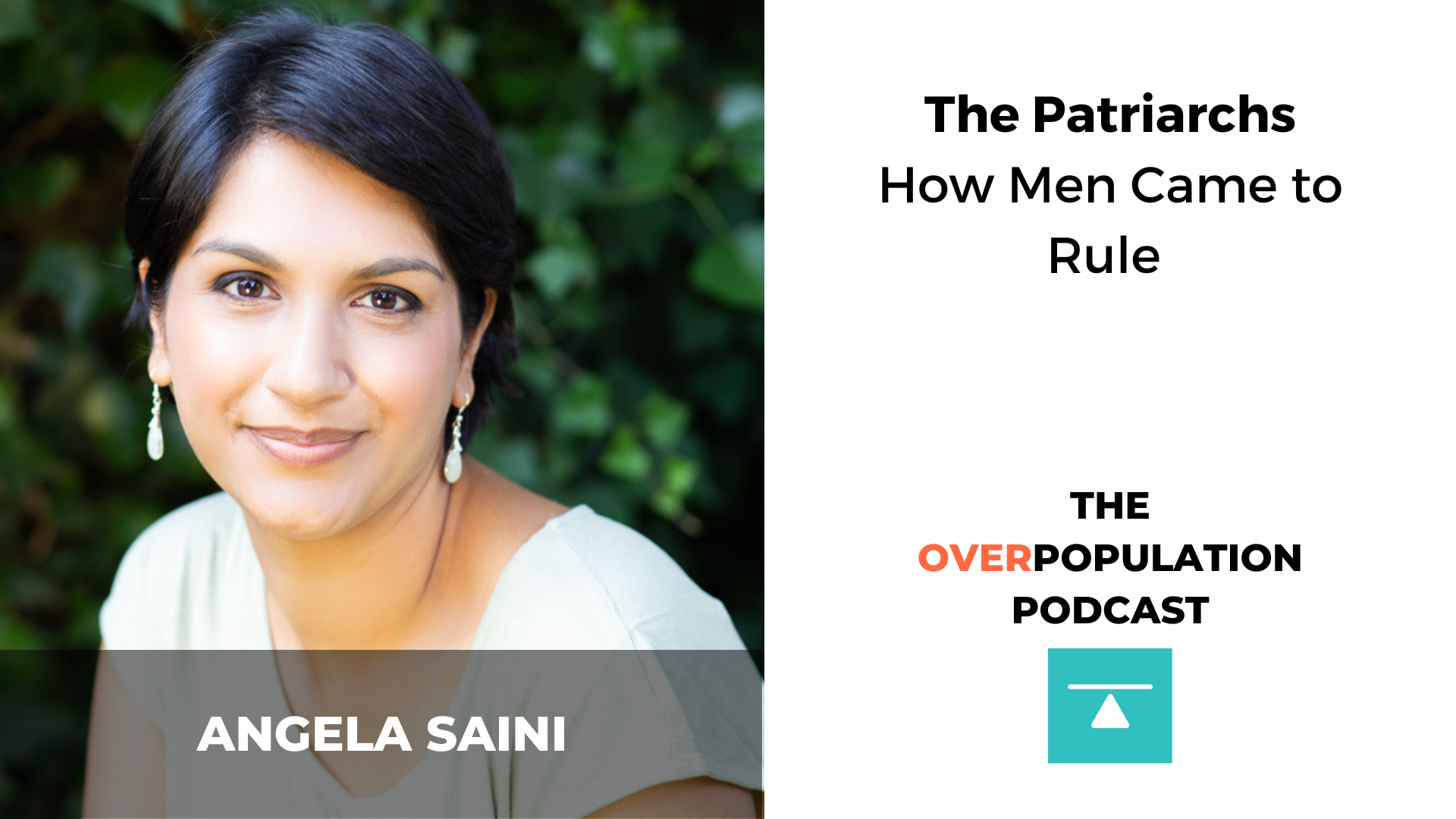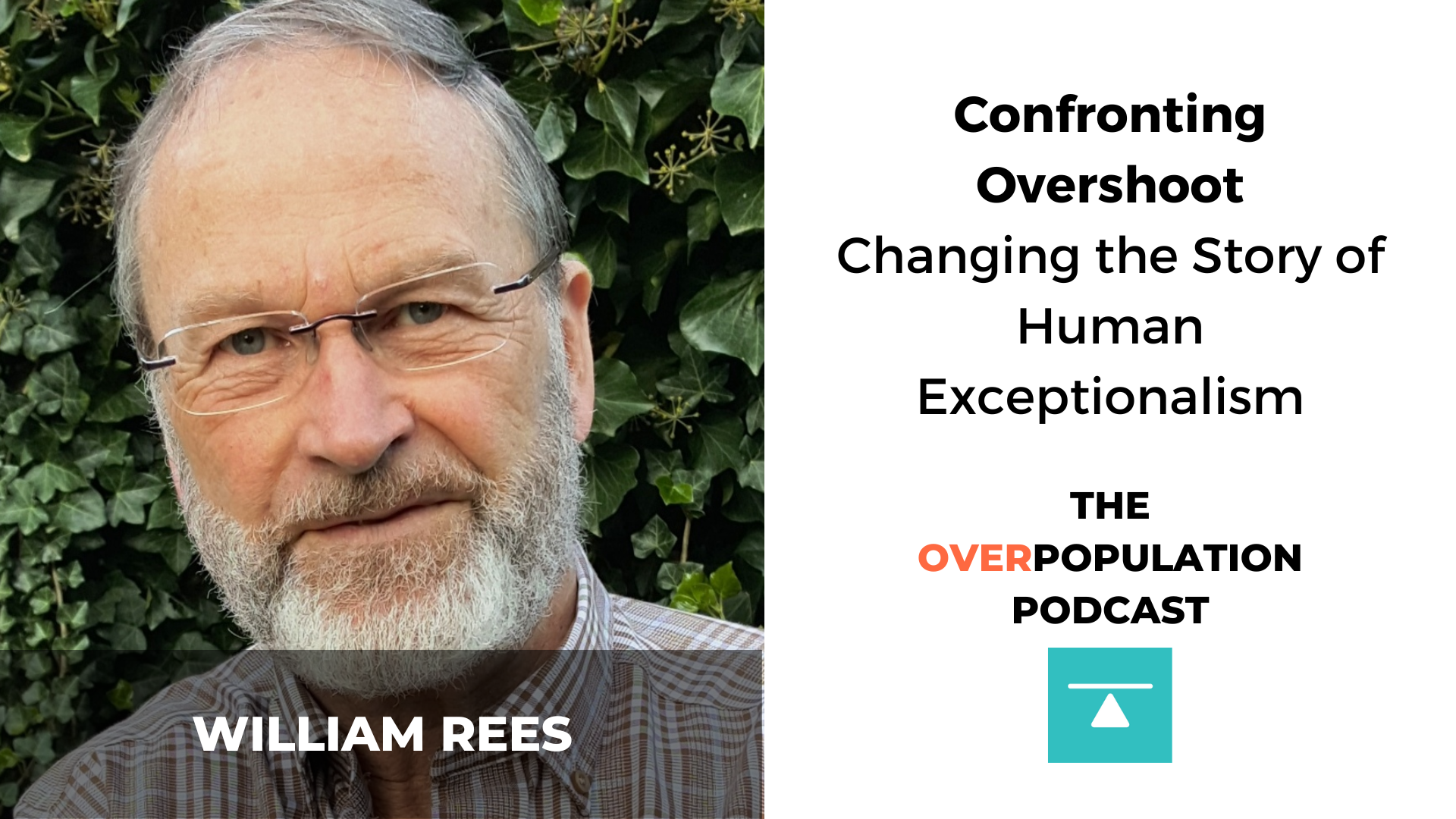
OUR PODCAST
Listen on your favorite app
The Overpopulation Podcast
The Overpopulation Podcast (here’s why we use the term “overpopulation”) features enlightening conversations between executive director Nandita Bajaj, researcher Alan Ware, and expert guests to discuss the often misunderstood impacts of our expanding human footprint on human rights, animal protection, and ecological preservation, as well as individual and collective solutions. We are proud to be the first and only nonprofit organization globally that draws the connections between pronatalism, human supremacy, social inequalities, and ecological overshoot. Ranking in the top 1.5% of all podcasts globally, we draw over 20,000 listeners from across 80 countries.
Read our Listener Feedback. | Support this podcast. | Subscribe to our newsletter.
New to our podcast?
There are over 60 episodes of The Overpopulation Podcast. If you are new to the podcast and are looking for a good place to start, we recommend you listen to these episodes first.
Latest Episodes

Untucking Overpopulation
It’s an insane world where speaking the scientific truth is an act of courage. Actress Alexandra Paul has been courageously educating people about human overpopulation for over thirty years. We discuss her TEDx Talk, her most notable effort in addition to her animal advocacy and her childfree lifestyle.

Meet the New Executive Director of World Population Balance
New Executive Director and podcast co-host Nandita Bajaj shares her brief history and the evolving path that led her to becoming a sustainable population advocate. She discusses why our growing human enterprise is the most pressing planetary justice issues of our time.

Reflection on Six Years of Leading World Population Balance
Podcast co-host Dave Gardner reflects on the agony and the ecstasy of working to alert, educate, and inspire action to end our overpopulation crisis for the last six years as executive director of WPB.

Sex, Religion, Politics and Overpopulation
In part two of our conversation with Chris Tucker, author of A Planet of 3 Billion, we continue exploring how to make the “uncomfortable” conversation more comfortable. He explains that we must absolutely figure out how to run a prosperous global economy under continuous population decline.

How Many of Us Can Earth Support?
We’re asking the Earth to support 80 million more humans every year, yet too few us ask, “What is a sustainable human population?” We talk to Chris Tucker, who wrote a book about it: A Planet of 3 Billion: Mapping Humanity’s Long History of Ecological Destruction and Finding Our Way to a Resilient Future.

Aging Population: Nothing to Fear
Are nations with low birth rates going to collapse due to a temporary bulge in the ranks of the elderly? On an overpopulated planet, this is an important question. Depopulation alarmists in numerous countries are pushing for baby bonuses or high immigration quotas in order to avoid getting into recovery from growth addiction.

"Are There Too Many of Us on Our Planet? Yes!"
A recent report on Deutsche Welle’s Eco India environmental news magazine recently asked, “Are There Too Many of Us on Our Planet?” Bajaj helps put to rest the false dichotomy between overpopulation and overconsumption and argues that we must address both.

World Contraception Day: Separating Sex from Conception
As World Contraception Day (26 September) approaches, Dave and Erika pick the brains of two experts, Alisha Graves and Malcolm Potts about separating sex from childbirth, which is what most women and men want, and it’s exactly what contraception allows us to do.

Busting Only-Child Myths
Journalist and author of One and Only: The Freedom of Having an Only Child, and the Joy of Being One, Lauren Sandler tells us there is “a lot of data supporting the one-child family as a healthy, important choice.”

New Film: To Kid or Not to Kid
Is motherhood an essential part of womanhood? Some think so, and it might surprise you how much societal pressure remains today for women to have children. Maxine Trump gave this decision much more careful and thorough consideration. She documents this in her new film, To Kid or Not to Kid.

Family Size Decisions That Consider Welfare of Children
If the number of children you decide to conceive will have a direct impact on the quality of life those children experience, should that consequence be factored into your family size decision?

Dropping Birth Rates are Good News
News reports and economists exhibit collective angst about declining birth rates and the resulting aging of populations in many nations. A research team at The Overpopulation Project wondered if these challenges outweigh the ecological advantage of a population shrinking back to a sustainable level.

Child-First Family Planning
We need to put our children first. Carter Dillard and Karin Kuhlemann of the non-profit, Having Kids, join host Dave Gardner for a very candid conversation explaining "child-first" family planning and how it will benefit our children and make human civilization more sustainable.

Capable of Making a Difference
Robin Maynard, the director of Population Matters, shares his thinking about human overpopulation and talks about the organization's goals, strategies, and tactics.

Small Family Campaigns and Incentives
Are there ethical and moral ways for governments to accelerate the move to smaller families in order to contract population? Ethicists Colin Hickey and Jake Earl weigh in on why this should be done, and how we might do it fairly, in order to shrink our carbon footprint.

Toward a Small Family Ethic
Travis Rieder, bioethicist and author of Toward a Small Family Ethic: How Overpopulation and Climate Change are Affecting the Morality of Procreation is encouraging everyone to consider the ethics of having children on an overpopulated, climate-disrupted planet.

Choosing Childfree
For over the last 15 years, Laura Carroll has been researching the childfree choice and those who make it, and has interviewed thousands who’ve made this choice. The discussion includes our pronatal culture, myths about family size, and the cost of raising children.










